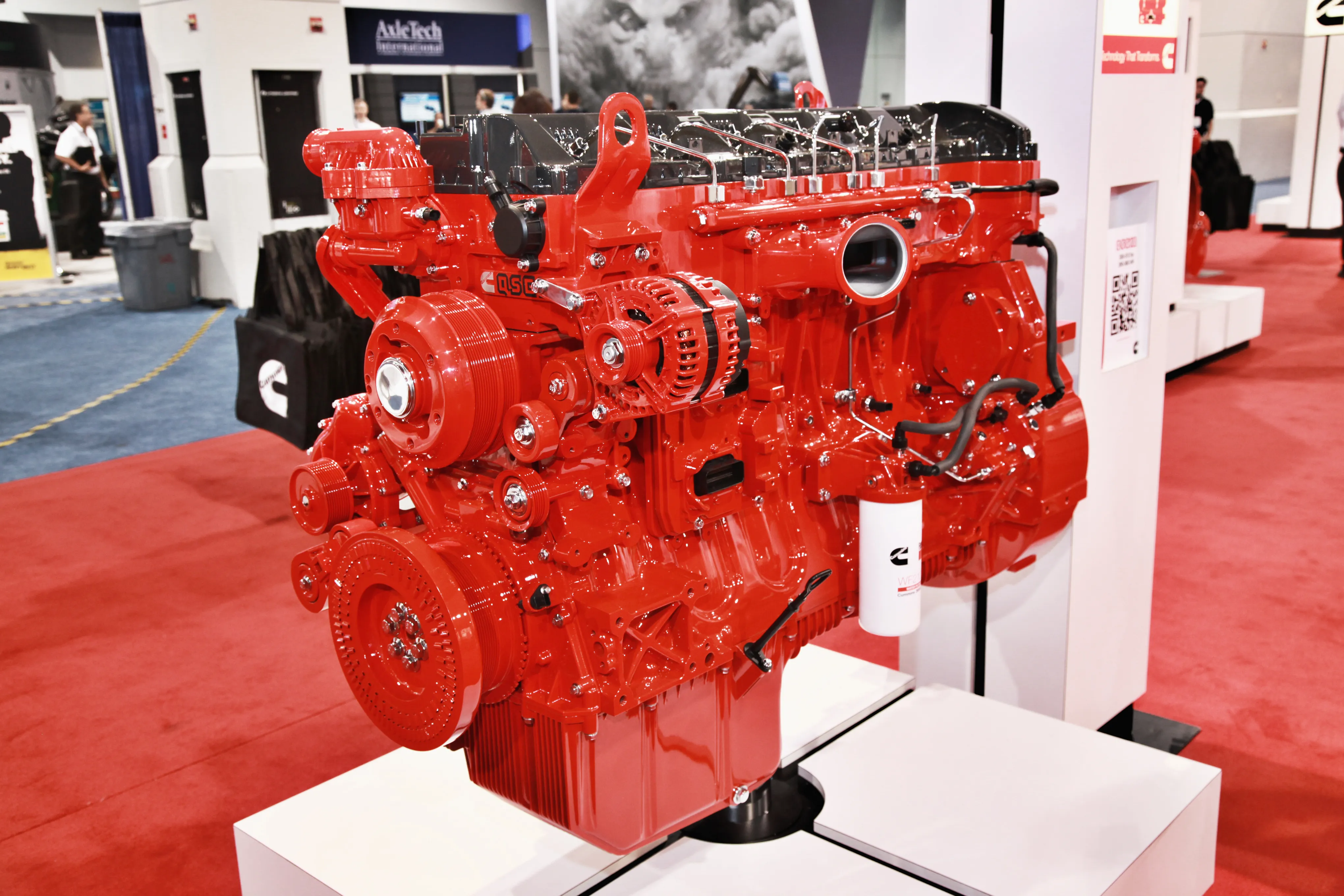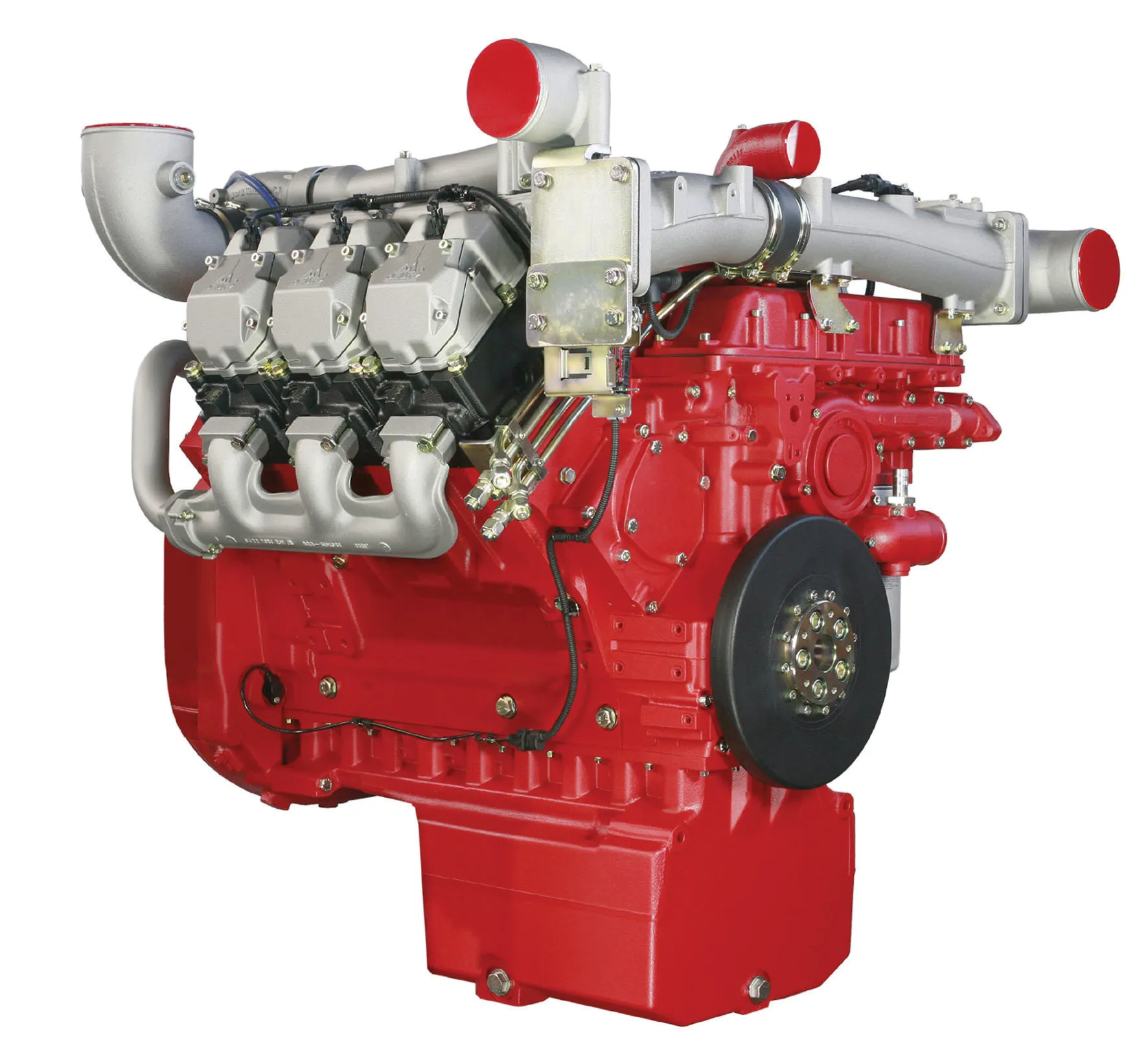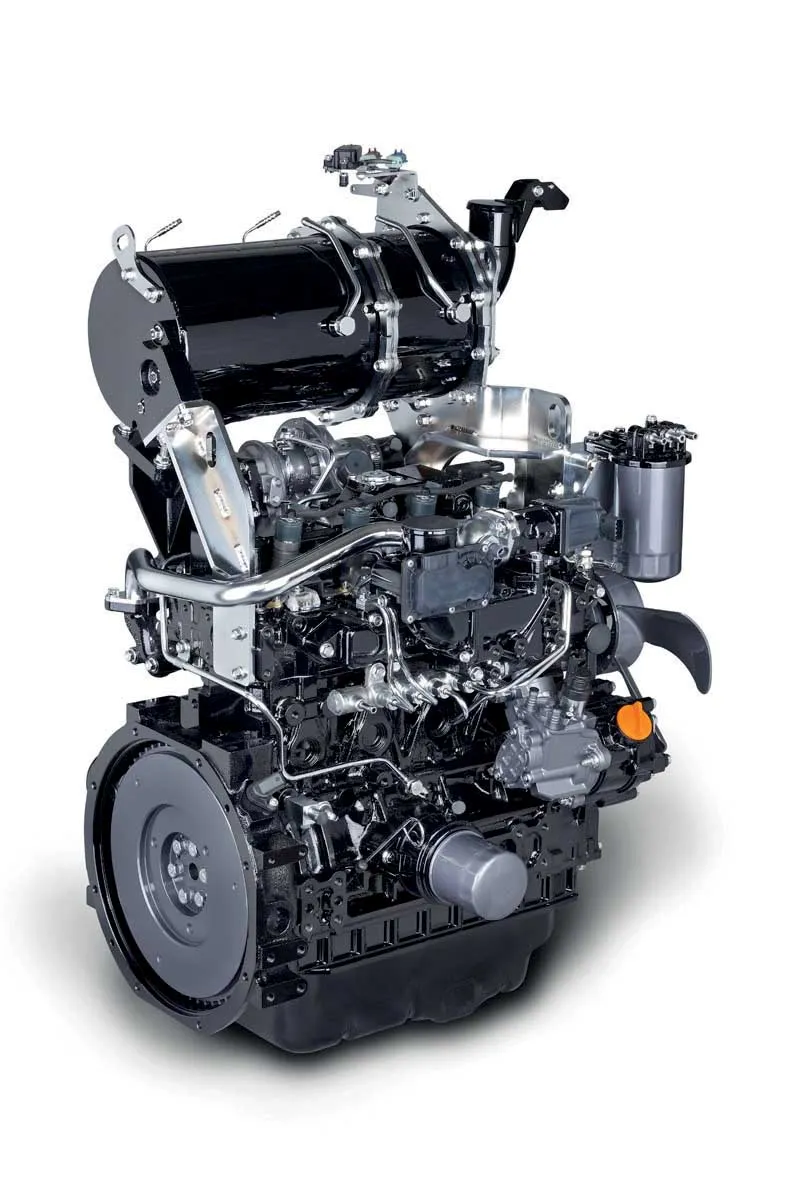Engine manufacturer Cummins is prepared for the coming EU Stage V emissions legislation, which is expected to take effect from 2019. The company has solutions fro its full range of engines from 55-300kW (74-400hp). Cummins said that through the use of new combustion, air flow and fuel injection systems, it has been able to meet the regulations on the four-cylinder QSF3.8 and QSB4.5 and six-cylinder QSB6.7 and QSL9 engines without needing to engine displacement. However it expects to see power and torque gai
March 15, 2016
Read time: 2 mins

Engine manufacturer 196 Cummins is prepared for the coming EU Stage V emissions legislation, which is expected to take effect from 2019. The company has solutions fro its full range of engines from 55-300kW (74-400hp). Cummins said that through the use of new combustion, air flow and fuel injection systems, it has been able to meet the regulations on the four-cylinder QSF3.8 and QSB4.5 and six-cylinder QSB6.7 and QSL9 engines without needing to engine displacement. However it expects to see power and torque gains of up to 10% across the range.
Stage V engines will be supplied as an integrated system with the Single Module exhaust after treatment system that was first shown last year. The Single Module is 50% smaller and 30% lighter than Stage IV/Tier 4 Final after treatment systems. The diesel particulate filter’s passive regeneration events minimise the need for preventative cleaning, while the selective catalytic reduction system is couple with the UL2 urea dosing system. The module uses a helical urea decomposition chanmber developed in conjunction with Faurecia Emissions Control Technologies.
Cummins is also announcing the availability of a Sulphur Tolerance Kit, that allows emissions compliant engines to be exported into territories without ultra-low sulphur diesel. The kit includes new engine calibration and hardware, depending on model, and is solely for use on engines that are being exported to non-regulated countries.
“The release of Cummins Sulphur Tolerance Kit broadens resale opportunity for customers, allowing them to sell used emissions compliant equipment into non-emissionised countries,” said executive director Hugh Foden.
All videos
Stage V engines will be supplied as an integrated system with the Single Module exhaust after treatment system that was first shown last year. The Single Module is 50% smaller and 30% lighter than Stage IV/Tier 4 Final after treatment systems. The diesel particulate filter’s passive regeneration events minimise the need for preventative cleaning, while the selective catalytic reduction system is couple with the UL2 urea dosing system. The module uses a helical urea decomposition chanmber developed in conjunction with Faurecia Emissions Control Technologies.
Cummins is also announcing the availability of a Sulphur Tolerance Kit, that allows emissions compliant engines to be exported into territories without ultra-low sulphur diesel. The kit includes new engine calibration and hardware, depending on model, and is solely for use on engines that are being exported to non-regulated countries.
“The release of Cummins Sulphur Tolerance Kit broadens resale opportunity for customers, allowing them to sell used emissions compliant equipment into non-emissionised countries,” said executive director Hugh Foden.
All videos








